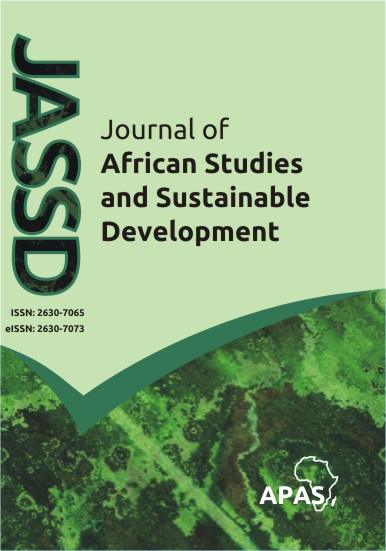 Journal of African Studies and Sustainable Development (JASSD) (Vol. 5 No. 2, 2022)
SOCIO-CULTURAL IMPACTS OF OGIGI FESTIVAL AMONG THE IKALE PEOPLE OF ONDO STATE, NIGERIA
Journal of African Studies and Sustainable Development (JASSD) (Vol. 5 No. 2, 2022)
SOCIO-CULTURAL IMPACTS OF OGIGI FESTIVAL AMONG THE IKALE PEOPLE OF ONDO STATE, NIGERIA
ABSTRACT
Among the numerous festivals of the Ikale people of Ondo State, in Nigeria, "Ogigi", which is also referred to as "Oluwa Eriji" - a name coined from River Oluwa by Abodi, the king - because 'parted' to allow the Abodi and High Chief Lema to pass through to Ikale-land - is the most widely recognised festival because of its historical significance. This popular festival has been celebrated annually by the Abodi family and the entire indigenes of Ikoya, usually in August of every year. It commences from the sighting of a new moon. Using key-informant and in-depth interviews, it was found that when the festival is not celebrated, for one reason or the other, it is generally believed that certain negative consequences would occur, such as the mysterious deaths of the chief priest and others; widespread barrenness of men and women, animals, farm-produce, etc. Even, failure to celebrate the festival can bring about the sudden death of the king and other notable dignitaries, including other disasters. However, when the festival is conscientiously celebrated by the people, many benefits accrue to the people and place, ranging from harmony, peaceful coexistence and unity; good health to all and sound healing of sicknesses, grand prosperity; and, even, being responsible for extending the king’s lifespan. It also gives an overall sense of identity and solidarity to the entire Ikale-indigenes and, also, boost economic activities in the area as the annual celebration brings home the sons and daughters, from all over the globe.

